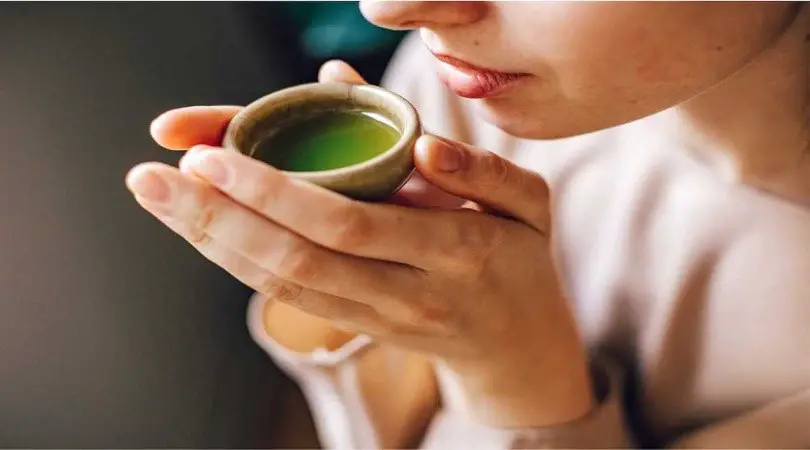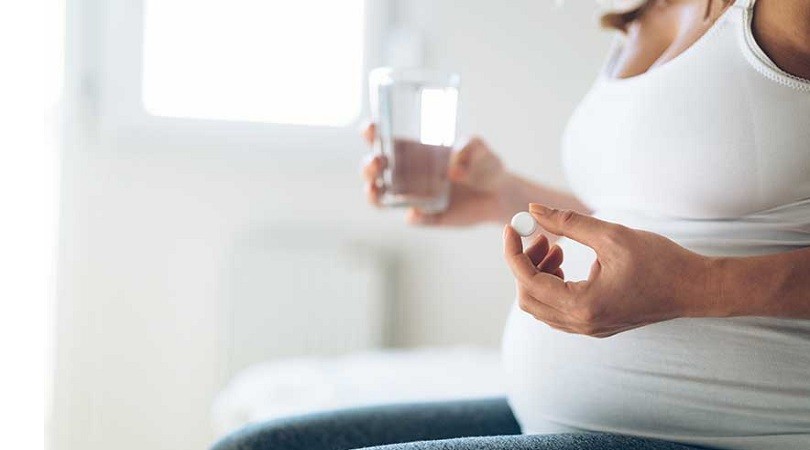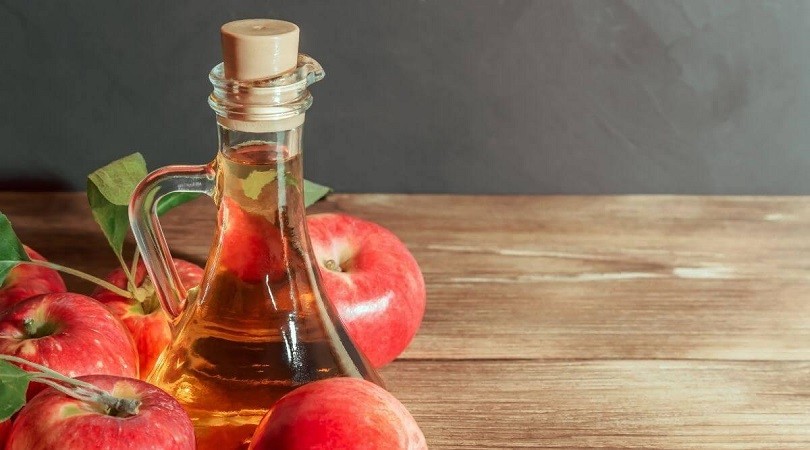Last Updated on January 6, 2025
Yes, you can drink matcha latte while pregnant, but in moderation, due to its caffeine content. Now, let’s dive into more details about matcha latte and its safety during pregnancy.
Matcha latte has gained popularity in recent years for its health benefits and unique flavor. Made from finely ground green tea leaves, matcha is known for its high concentration of antioxidants, vitamins, and minerals. Many people wonder if it’s safe to enjoy matcha latte during pregnancy.
When consumed in moderation, matcha latte is generally considered safe for pregnant women. However, it’s important to note that matcha contains caffeine, which can cross the placenta and affect the baby. Too much caffeine during pregnancy has been associated with an increased risk of miscarriage and preterm birth. The recommended daily caffeine intake for pregnant women is limited to 200 mg, which is roughly equal to one cup of matcha latte. It’s important to be mindful of other sources of caffeine in your diet, such as coffee, tea, and chocolate, as they contribute to your overall caffeine intake. While you can enjoy matcha latte during pregnancy, it’s advisable to consume it in moderation and stay within the recommended daily caffeine limits to ensure the well-being of both you and your baby.

Credit: urbanmamaz.com
Introduction To Matcha Latte And Its Benefits During Pregnancy
**introduction to matcha latte and its benefits during pregnancy**
Matcha latte has become increasingly popular in recent years, thanks to its vibrant green color and unique taste. But if you’re expecting, you might be wondering if it’s safe to enjoy this delicious beverage during pregnancy. We will explore what matcha latte is, its nutritional benefits, and why it can be a healthy addition to a balanced diet during pregnancy.
What Is Matcha Latte?
Matcha latte is a type of green tea that originated in japan. Unlike regular green tea, matcha is made from powdered green tea leaves, resulting in a more concentrated flavor and higher nutrient content. Matcha is traditionally prepared by whisking the powdered tea with hot water, and in the case of a matcha latte, it’s combined with steamed milk.
Nutritional Benefits Of Matcha Latte
Matcha is packed with beneficial compounds that can support overall health, which is especially important during pregnancy. Here are some key nutrients found in matcha latte:
- Catechins: Matcha is rich in catechins, a type of antioxidant that helps protect the body from oxidative stress and inflammation.
- L-theanine: This amino acid found in matcha promotes relaxation and helps to reduce stress.
- Vitamins and minerals: Matcha is a good source of vitamins a, c, and e, as well as minerals like potassium, calcium, and iron.
- Chlorophyll: Matcha’s vibrant green color comes from its high chlorophyll content, which has detoxifying properties.
Importance Of A Balanced Diet During Pregnancy
Maintaining a balanced diet during pregnancy is vital for the health and development of both the mother and the baby. A diet rich in nutrients ensures that the baby receives everything it needs to grow and thrive. Here’s why matcha latte can be a beneficial addition to a balanced pregnancy diet:
- Antioxidant boost: The antioxidants in matcha latte help protect against cell damage and support a healthy immune system.
- Energy and focus: The natural caffeine present in matcha provides an energy boost without the jitters, helping you stay alert and focused throughout the day.
- Stress reduction: Pregnancy can be a stressful time, and the l-theanine in matcha promotes relaxation and helps combat anxiety.
- Nutrient density: Matcha is a concentrated source of vitamins, minerals, and antioxidants, making it a nutrient-dense beverage that can contribute to overall well-being during pregnancy.
Remember, moderation is key when consuming matcha latte during pregnancy. It’s important to consult with your healthcare provider to ensure that matcha fits into your individual dietary needs and overall pregnancy plan.
So, the next time you’re craving a warm and comforting beverage, feel free to indulge in a delicious matcha latte, knowing that it can provide you with a range of nutritional benefits to support a healthy pregnancy.
Understanding The Effects Of Caffeine On Pregnancy
Pregnancy is a special time in a woman’s life, filled with excitement and anticipation. During this period, many women are cautious about what they put into their bodies to ensure the health and well-being of their unborn child. One common beverage that often comes into question is matcha latte.
If you’re wondering whether it’s safe to indulge in this delightful green drink while pregnant, let’s explore the effects of caffeine on pregnancy.
Safe Caffeine Intake During Pregnancy
When it comes to caffeine consumption during pregnancy, the key is moderation. While it’s generally advised to limit caffeine intake, the american college of obstetricians and gynecologists (acog) states that moderate consumption, around 200 mg per day, is considered safe for most pregnant women.
Keep in mind that this includes all sources of caffeine, such as coffee, tea, and certain soft drinks.
How Much Caffeine Does Matcha Latte Contain?
Matcha latte is made from finely ground green tea leaves, giving it a vibrant green color and a unique flavor profile. Compared to regular green tea, matcha latte contains a slightly higher amount of caffeine. On average, an 8-ounce cup of matcha latte can contain anywhere from 30 to 70 mg of caffeine, depending on the specific recipe and brewing method.
It’s important to consider this amount when calculating your overall caffeine intake for the day.
The Impact Of Excessive Caffeine Consumption On Pregnancy
While moderate caffeine consumption is generally considered safe, excessive intake can potentially have negative effects on pregnancy. High levels of caffeine have been associated with increased risk of miscarriage and preterm birth. Additionally, excessive caffeine intake can affect the baby’s heart rate and contribute to low birth weight.
To minimize these risks, it’s important to be mindful of your overall caffeine consumption and stay within the recommended limits.
Enjoying a matcha latte during pregnancy can be a delightful treat, as long as it is consumed in moderation. It’s crucial to be aware of your total caffeine intake and stay within the recommended guidelines to ensure a healthy pregnancy.
As always, it’s best to consult with your healthcare provider for personalized advice and guidance throughout your pregnancy journey.
Potential Risks Of Drinking Matcha Latte While Pregnant
Matcha latte has gained popularity in recent years as a trendy and delicious beverage option. With its vibrant green color and unique flavor, it’s no wonder that many pregnant women may be tempted to indulge in a cup or two.
However, it’s crucial to consider the potential risks that come with consuming matcha latte during pregnancy. Let’s explore these risks in more detail.
Increased Risk Of Miscarriage
Miscarriage is one of the most significant concerns for pregnant women, and certain factors can increase the risk. When it comes to matcha latte consumption during pregnancy, studies suggest that the high caffeine content in matcha may be linked to an increased risk of miscarriage.
It’s important to note that matcha contains more caffeine than regular green tea, making it a potential risk factor for miscarriage.
Toxicity from excessive caffeine intake can lead to complications during pregnancy. Therefore, it is essential for pregnant women to be cautious about their caffeine consumption, including matcha latte, to reduce the risk of miscarriage.
Interference With Nutrient Absorption
Proper nutrient absorption is crucial for the healthy development of the fetus during pregnancy. Unfortunately, consuming matcha latte while pregnant may interfere with this essential process. Matcha contains tannins, which can bind to certain nutrients and hinder their absorption in the body.
This interference may result in a deficiency of vital nutrients for both the mother and the baby.
Maintaining a well-balanced diet is vital during pregnancy to ensure optimal health and development. If matcha latte is a regular part of your diet, it may be wise to reconsider or moderate your consumption to avoid potential nutrient absorption issues.
While matcha latte may be a tempting and delicious choice, it’s important for pregnant women to be aware of the potential risks associated with its consumption. As with any dietary decision during pregnancy, it’s always best to consult with a healthcare professional to make an informed choice that prioritizes the health and well-being of both the mother and the baby.
Exploring The Health Benefits Of Matcha Latte During Pregnancy
Matcha latte has gained immense popularity in recent years, thanks to its vibrant green color, delicious flavor, and numerous health benefits. But what about pregnant women? Can they enjoy a soothing cup of matcha latte without any worries? We will explore the health benefits of matcha latte during pregnancy, so let’s dive right in!
Antioxidant Properties Of Matcha Latte And Their Role In Pregnancy:
- Matcha tea is known for its high antioxidant content, which makes it a great choice for pregnant women. Antioxidants help protect the body from harmful free radicals and reduce inflammation, which is crucial during pregnancy.
- The catechins present in matcha are a type of antioxidant that has been studied for their potential benefits in preventing pregnancy complications such as gestational diabetes and preeclampsia.
- Matcha latte can provide a much-needed antioxidant boost to support the overall health and well-being of both the mother and the growing baby.
Boosting The Immune System With Matcha Latte During Pregnancy:
- Pregnancy can put a strain on the immune system, making it more susceptible to illness. Matcha latte contains compounds called polyphenols, which have immune-boosting properties.
- The presence of epigallocatechin gallate (egcg) in matcha further enhances its immune-strengthening effects. Egcg has been shown to enhance immune function and protect against various infections.
- Enjoying a cup of matcha latte can help expecting mothers fortify their immune system and stay healthy throughout their pregnancy journey.
Providing A Source Of Essential Nutrients For The Developing Baby:
- Matcha latte not only tastes great but also provides a good amount of essential nutrients that are vital for the healthy growth and development of the baby.
- It is rich in important vitamins and minerals like vitamin c, vitamin a, iron, and calcium. These nutrients play a crucial role in supporting the formation of the baby’s bones, teeth, and overall development.
- Moreover, matcha latte is a natural source of caffeine, which is considered safe in moderate amounts during pregnancy. However, it’s important to note that excessive caffeine consumption should be avoided.
Matcha latte can be a safe and enjoyable beverage for pregnant women, providing them with antioxidants, immune support, and essential nutrients. As always, it’s important to consult with your healthcare provider before making any changes to your diet during pregnancy.
So go ahead and savor a cup of matcha latte while nourishing both your body and your baby!
Safe Consumption Tips For Matcha Latte During Pregnancy
As a soon-to-be mother, it’s natural to have questions about what you can and cannot consume during pregnancy. One popular drink that often raises concerns is matcha latte. While matcha latte can be a delicious and energizing beverage, it’s important to understand the potential risks and make informed choices for the well-being of both you and your baby.
We will explore the topic of drinking matcha latte while pregnant and provide safe consumption tips to help you make the best decision for your pregnancy journey.
Moderation Is Key: Recommended Serving Size
When it comes to matcha latte consumption during pregnancy, moderation is key. While matcha contains beneficial antioxidants and nutrients, it also contains caffeine. It’s generally recommended to limit your caffeine intake during pregnancy to 200 milligrams per day. One cup of matcha latte typically contains around 30-50 milligrams of caffeine, depending on the strength.
To ensure you stay within the recommended limits, consider the following tips:
- Limit your matcha latte consumption to one small cup per day.
- Choose ceremonial grade matcha, as it contains less caffeine compared to culinary grade matcha.
- Consider reducing the amount of matcha powder used in your latte to further decrease the caffeine content.
Alternatives To Matcha Latte For Pregnant Women
If you prefer to avoid caffeine altogether during your pregnancy or are looking for alternative beverages, there are plenty of options available. Here are some caffeine-free alternatives to enjoy:
- Decaffeinated green tea: If you still want to experience the goodness of green tea without the caffeine, opt for decaffeinated versions.
- Herbal teas: Herbal teas like peppermint, ginger, chamomile, and rooibos are safe and can provide soothing effects during pregnancy.
- Fruit-infused water: Create refreshing and hydrating beverages by infusing water with slices of fruits like lemon, cucumber, or berries.
- Milk-based drinks: If you crave a warm and creamy beverage, consider unsweetened almond milk, oat milk, or regular milk without added flavorings.
Herbal Teas Safe For Pregnancy
During pregnancy, certain herbal teas are considered safe for consumption. However, it’s always advisable to check with your healthcare provider before incorporating any new herbal tea into your routine. Here are some popular herbal teas that pregnant women often enjoy:
- Peppermint tea: Known for its soothing properties in aiding digestion and relieving nausea.
- Ginger tea: Often used to alleviate morning sickness and digestive issues.
- Chamomile tea: Renowned for its calming effects and potential sleep-promoting benefits.
- Rooibos tea: A caffeine-free herbal tea that is rich in antioxidants and popular for its mild and fruity flavor.
Other Non-Caffeinated Beverages To Consider
While it’s essential to stay hydrated during pregnancy, water doesn’t always have to be your only option. If you’re looking for non-caffeinated beverages to keep things interesting, try these ideas:
- Freshly squeezed juices: Make your own nutritious and vibrant juices using a variety of fruits and vegetables.
- Smoothies: Blend together a mix of fruits, yogurt or milk, and leafy greens for a nutritious and refreshing drink.
- Infused waters: Add slices of fruits, herbs, or even vegetables to your water to infuse it with natural flavors.
- Mocktails: If you’re celebrating a special occasion or simply want to treat yourself, explore non-alcoholic mocktail recipes for a fun and flavorful drink.
Remember, it’s crucial to consult with your healthcare provider regarding specific dietary concerns and any individual restrictions you may have during pregnancy. By staying informed and making mindful choices, you can still enjoy a variety of beverages that are safe and nourishing for both you and your baby.
Answering Common Questions About Drinking Matcha Latte While Pregnant
If you’re a matcha lover who is expecting, you may be wondering if it’s safe to still enjoy your favorite matcha latte during pregnancy. In this section, we’ll address some common questions about drinking matcha latte while pregnant to help you make an informed decision.
Can Matcha Latte Impact Fetal Development?
Matcha latte contains caffeine, which is a stimulant that can cross the placenta and affect your baby’s development. Here are some key points to consider:
- Caffeine intake should be limited during pregnancy to minimize the risk of potential negative effects on the fetus.
- High caffeine consumption has been linked to an increased risk of miscarriage, preterm birth, and low birth weight.
- Matcha latte typically contains less caffeine than a regular cup of coffee, but it’s still important to be mindful of your overall caffeine intake.
Is It Safe To Consume Matcha Latte In The First Trimester?
The first trimester is a critical time for fetal development, and many women are cautious about their food and drink choices during this period. Here’s what you need to know:
- The american college of obstetricians and gynecologists advises pregnant women to limit their caffeine intake to 200 milligrams (mg) per day.
- An average cup of matcha latte contains around 30-40 mg of caffeine, but the caffeine content can vary depending on the preparation method and serving size.
- It’s generally safe to consume matcha latte in moderation during the first trimester, as long as you stay within the recommended daily limit for caffeine.
Should Pregnant Women Avoid Matcha Latte Completely?
While matcha latte can be enjoyed in moderation during pregnancy, some women may choose to avoid it altogether for personal reasons or due to caffeine sensitivity. Consider the following:
- If you are particularly sensitive to caffeine or have been advised by your healthcare provider to limit caffeine intake, it may be best to avoid matcha latte.
- Opting for decaffeinated matcha or herbal teas can be a caffeine-free alternative if you still want to enjoy a warm beverage.
- As with any dietary choice during pregnancy, it’s always best to consult with your doctor or healthcare professional for personalized advice.
While it’s generally safe to consume matcha latte in moderation during pregnancy, it’s important to be mindful of your caffeine intake and consult with your healthcare provider for specific guidance. Each woman’s pregnancy journey is unique, so it’s essential to make decisions that align with your individual needs and circumstances.
Remember, a healthy lifestyle and a balanced diet are key to supporting a smooth pregnancy.
Frequently Asked Questions For Can I Drink Matcha Latte While Pregnant?
Can I Drink Matcha Latte While Pregnant?
Yes, you can drink matcha latte while pregnant, but it’s important to consume it in moderation.
Is Matcha Latte Safe For Pregnant Women?
Matcha latte is generally safe for pregnant women, but it’s recommended to consult with your healthcare provider.
Are There Any Benefits Of Drinking Matcha Latte During Pregnancy?
Drinking matcha latte during pregnancy can provide antioxidants and a gentle caffeine boost, but remember to monitor your intake.
Are There Any Risks Associated With Drinking Matcha Latte While Pregnant?
Excessive consumption of matcha latte during pregnancy may lead to high caffeine intake, so it’s best to moderate your consumption.
How Much Matcha Latte Can I Drink During Pregnancy?
It’s recommended to limit your matcha latte consumption to 1-2 cups per day to ensure a safe caffeine intake level.
Conclusion
Drinking matcha latte during pregnancy is generally safe, but moderation and caution are key. Matcha contains caffeine, although in lower levels compared to coffee. The small amounts of caffeine in matcha can be enjoyed as part of a healthy, balanced diet for expectant mothers.
However, excessive caffeine consumption can increase the risk of preterm birth or low birth weight. It is crucial to be mindful of the overall caffeine intake from other food and beverages throughout the day. While matcha also offers health benefits due to its rich antioxidant content, it is advisable to consult your healthcare provider before incorporating it into your pregnancy diet.
They can provide personalized recommendations based on your specific health needs. Remember, every pregnancy is unique, so listening to your body and seeking professional guidance is essential for a safe and healthy pregnancy journey.











